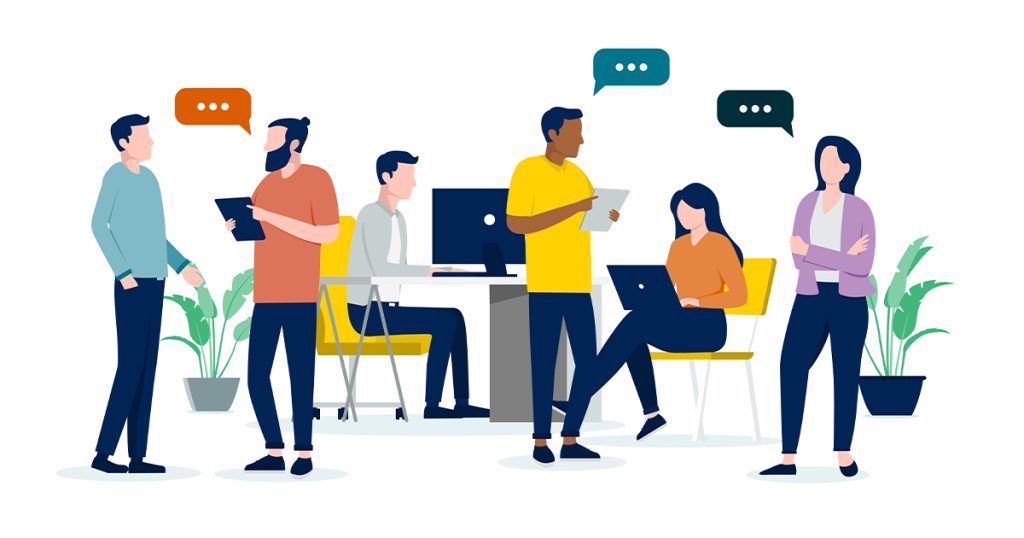In a world where effective communication is paramount, mastering the art of dialogue is essential for success in both personal and professional endeavors. Whether it’s expressing ideas, resolving conflicts, or building meaningful relationships, honing your communication skills can make all the difference. In this comprehensive guide, we’ll explore strategies for mastering the art of communication and fostering effective dialogue in any context. Unlock the secrets to effective communication with our guide, ‘Mastering the Art of Communication: Strategies for Effective Dialogue.’
The Importance of Effective Communication
Effective communication serves as the cornerstone of success in various aspects of life. In the workplace, it facilitates collaboration, boosts productivity, and enhances team dynamics. In personal relationships, it fosters understanding, strengthens bonds, and resolves conflicts amicably. By mastering the art of communication, individuals can navigate complex social interactions with confidence and clarity.

Building Rapport and Trust
One of the fundamental principles of effective communication is building rapport and trust with your audience. Whether you’re speaking to a colleague, a client, or a loved one, establishing a connection based on mutual respect and understanding lays the foundation for meaningful dialogue. Active listening, empathy, and open-mindedness are key elements in building rapport and fostering trust in any interaction.
Clear and Concise Communication
Clarity is paramount in communication. Clear and concise messaging ensures that your intended meaning is understood without ambiguity or confusion. Whether you’re delivering a presentation, writing an email, or engaging in a face-to-face conversation, strive to articulate your thoughts in a straightforward manner. Avoid jargon, complex language, and unnecessary details that may obscure your message.
Strategies for Effective Dialogue
Effective dialogue requires more than just speaking; it involves active engagement, attentive listening, and thoughtful response. By employing the following strategies, you can enhance the quality of your interactions and communicate more effectively with others.
Active Listening
Active listening is a foundational skill in effective communication. Instead of simply waiting for your turn to speak, actively engage with the speaker by giving them your full attention. Maintain eye contact, nod in acknowledgment, and provide verbal cues such as “I see” or “Go on” to indicate your interest and understanding. Avoid interrupting or formulating your response while the other person is speaking, as this can disrupt the flow of communication and hinder mutual understanding.
Empathy and Understanding
Empathy is the ability to understand and share the feelings of another person. Cultivating empathy allows you to see things from the other person’s perspective, fostering a deeper level of understanding and connection. When engaging in dialogue, put yourself in the other person’s shoes and strive to empathize with their thoughts, feelings, and experiences. Validate their emotions and demonstrate empathy through active listening, supportive gestures, and nonverbal cues.
Constructive Feedback and Conflict Resolution
Conflict is inevitable in any relationship or interaction, but how it’s managed can make all the difference. Instead of avoiding conflict or resorting to aggression, strive to resolve differences through constructive dialogue and mutual respect. When offering feedback or addressing concerns, focus on specific behaviors or actions rather than attacking the individual personally. Use “I” statements to express your feelings and perspectives without placing blame or making accusatory remarks. By approaching conflicts with an open mind and a willingness to find common ground, you can transform adversarial situations into opportunities for growth and collaboration.
Conclusion
Mastering the art of communication is an ongoing journey that requires patience, practice, and self-awareness. By incorporating strategies such as active listening, empathy, and constructive feedback into your interactions, you can enhance the quality of your dialogue and cultivate stronger connections with others. Whether in the workplace, in social settings, or in personal relationships, effective communication is the key to building trust, fostering understanding, and achieving mutual goals. Start mastering the art of communication today, and watch as your relationships and opportunities flourish.
Come and visit this link: https://vbctraining.com.au/corporate-communication-training-healthcare/
